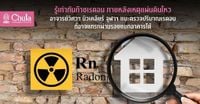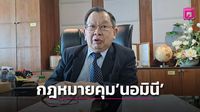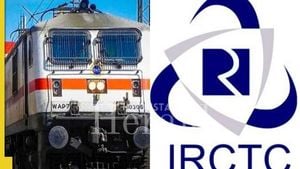On April 16, 2025, Mr. Throngsak Sae-cho, the Inspector General of the Ministry, revealed that the Office of the Inspector General has prepared recommendations for the Cabinet following an inspection that found numerous businesses operating under nominee status. This practice is reportedly expanding across ten sectors, including transportation, restaurants, retail, online businesses, real estate, agriculture, durian farms, fruit orchards, and construction. The implications of nominee businesses are concerning, as they are linked to issues such as crime, money laundering, and illegal trade, all of which negatively impact tax revenue and the livelihoods of Thai citizens.
After collaborating with relevant agencies, the Inspector General proposed these recommendations to the government, emphasizing a critical gap in Thailand's legal framework regarding nominee businesses. Currently, there are no specific laws governing this issue, nor is there a dedicated agency to oversee it. To address these concerns, Throngsak called for a comprehensive overhaul of existing laws and regulations, including the establishment of a central law to mitigate the impact of nominee businesses on the country.
Additionally, the Inspector General has sent recommendations to the House of Representatives, the Senate, and the Lawyers Council. A joint meeting with these agencies is scheduled for late April to discuss progress on these recommendations. Throngsak also indicated plans to visit business areas with a significant foreign presence, both in Bangkok and other provinces.
Among the proposals sent to the Cabinet is a request for the Prime Minister's Office to issue regulations addressing nominee transactions on behalf of foreigners. This could take the form of a committee led by the Prime Minister, with a specific agency tasked with oversight. Throngsak urged for a clear definition of what constitutes a nominee business and stressed the need for all agencies to collaborate through administrative measures. He suggested that local mechanisms be established to monitor areas at risk of nominee business activities.
As of now, the Prime Minister has tasked the Ministry of Commerce with drafting these regulations. Throngsak pointed out that there must be vigilance in agricultural areas, particularly in provinces like Chanthaburi, Trat, and Chumphon, where land and agricultural areas are at risk of being exploited by nominee businesses. He highlighted that 10-20% of companies in Chanthaburi are foreign-owned.
Furthermore, Throngsak called for amendments to the Foreign Business Act of 1999, specifically to clarify the definitions of foreigners and actions that qualify as nominee businesses. This includes provisions to ensure that Thai individuals maintain control, even if they hold 51% of the shares, as long as management power is proven to reside with foreigners.
To further address the issue, the Inspector General proposed measures to track share transfers, asset sales, and the verification of Thai shareholders through financial records from the past five years. He also recommended increasing penalties for both Thai and foreign nationals involved in nominee businesses, suggesting prison sentences of 5-7 years and higher fines commensurate with the size of the business.
Additionally, the Land Code should be amended to increase penalties for foreigners found guilty of using nominee businesses to acquire and hold land. In such cases, assets should be confiscated by the state rather than simply sold back. Throngsak emphasized the importance of stringent laws to deter such practices and proposed zoning and monitoring of agricultural areas vulnerable to nominee operations.
In his recommendations to the Lawyers Council, Throngsak urged oversight of foreign companies entering the market, which often utilize legal and accounting firms to navigate Thai regulations. He called for the Royal Thai Police and relevant agencies to enforce laws rigorously.
Moreover, the Board of Investment (BOI) is expected to collaborate with the Department of Business Development and other agencies to promote trade and investment while monitoring nominee activities. This is crucial as many foreigners are reportedly buying agricultural land and controlling transportation and trade systems.
Throngsak noted that enhancing the capabilities of Thai farmers and entrepreneurs in business operations, exports, and distribution is essential to mitigate the risks associated with nominee businesses. Public awareness is also key, as he stated, "One of the crucial measures is to raise awareness among officials and citizens. We propose that immediate actions can be taken, and in the future, specific laws should be drafted to address nominee businesses comprehensively."
He further stressed that the government should prioritize this issue as a national agenda and take urgent action. The agencies receiving these recommendations are urged to expedite their implementation, and the Ministry of Commerce is expected to fast-track the drafting of the Prime Minister's regulations to serve as a central mechanism.
When asked about the potential for negligence among officials due to ongoing public complaints regarding nominee businesses, Throngsak acknowledged that officials face legal limitations and often follow existing laws, which lack specific oversight for this issue. He expressed hope for improvements in enforcement through the Inspector General's recommendations, but emphasized that it ultimately depends on the sincerity of officials in their law enforcement duties.
As for concerns regarding free visa policies allowing foreigners to enter Thailand and compete for jobs, Throngsak noted that such policies fall under government policy and he refrained from commenting on them. However, he acknowledged that if these policies have adverse effects, appropriate measures should be put in place to mitigate negative impacts.
In summary, statistics show that as of 2025, there are approximately 926,950 registered companies in Thailand, with 127,522 of them having foreign shareholders, and 18,288 companies where foreigners hold up to 49% of shares. The Inspector General's recommendations aim to address the growing concern over nominee businesses and their implications for Thailand's economic security.





